- Fellow Highlights
Fellow Reflection: US Surgeon General Dr. Vivek Murthy
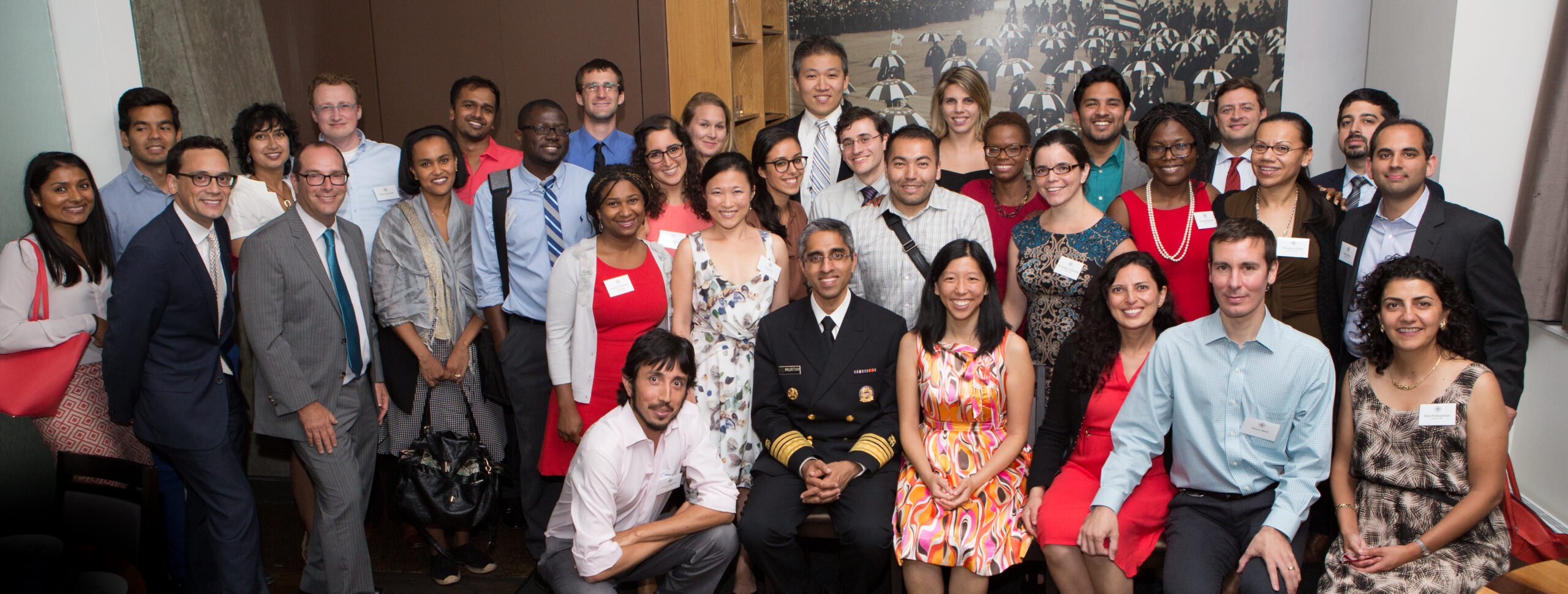
The following is a reflection by Rollie Lal (1998 Fellow) on the Paul & Daisy Soros Fellows Association (PDSFA) dinner with Dr. Vivek Murthy (1998 Fellow), which took place on August 6, 2015 in Washington, DC. The PDSFA is the alumni association for all recipients of The Paul & Daisy Soros Fellowships for New Americans, which supports immigrants and children of immigrants who are attending graduate school in the United States.
The other day I found myself wondering how this country could rid itself of its serious health problems. Not the heart attacks, diabetes, obesity, smoking issues, or even the toxic chemical spills leaching into our very water supply and creating seven legged fish at the moment were on my mind.
No, it was the devastating epidemic of FOBO. What, you say? The Fear of Being Offline. I’d read about it on the internet. The solution was not obvious. Withdrawal included sweaty palms (iPhones too) and violent tremors, the latter even more disturbing if you had the phone on vibrate mode. What was our country to do?
The answer appeared soon after, at a fine Paul & Daisy Soros Fellows Association (PDSFA) event in honor of our very own Dr. Vivek Murthy, the US Surgeon General. Vivek calmly moved our attention toward the importance of mindfulness and meditation. Emotional health. Of course, I thought. I absently wondered if there was an app for that…
But before I get further into the Surgeon General’s comments, let me tell you about the brilliant attendees at the event and how I know Vivek. We are both part of the 1997 class of Fellows; yes, the very first class! We’ve watched as the community has grown from just 20 Fellows, to 535 in just 17 years. A portion of the Fellows met over dinner in DC at the District Commons. DC, as you may know, is often referred to as “the San Francisco of the east” because of the fact that it does indeed have a bridge. In any case, the Fellows caught up with one another and then engaged Vivek in a conversation about his role as the lead doctor in the country and his experience as a 1998 Paul & Daisy Soros Fellow.
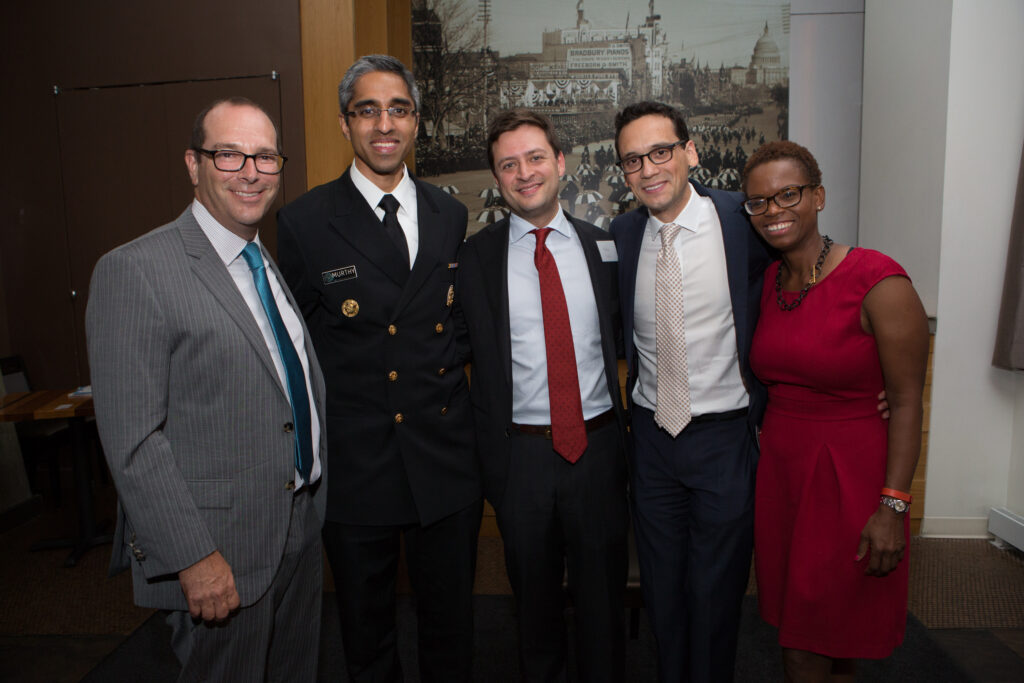
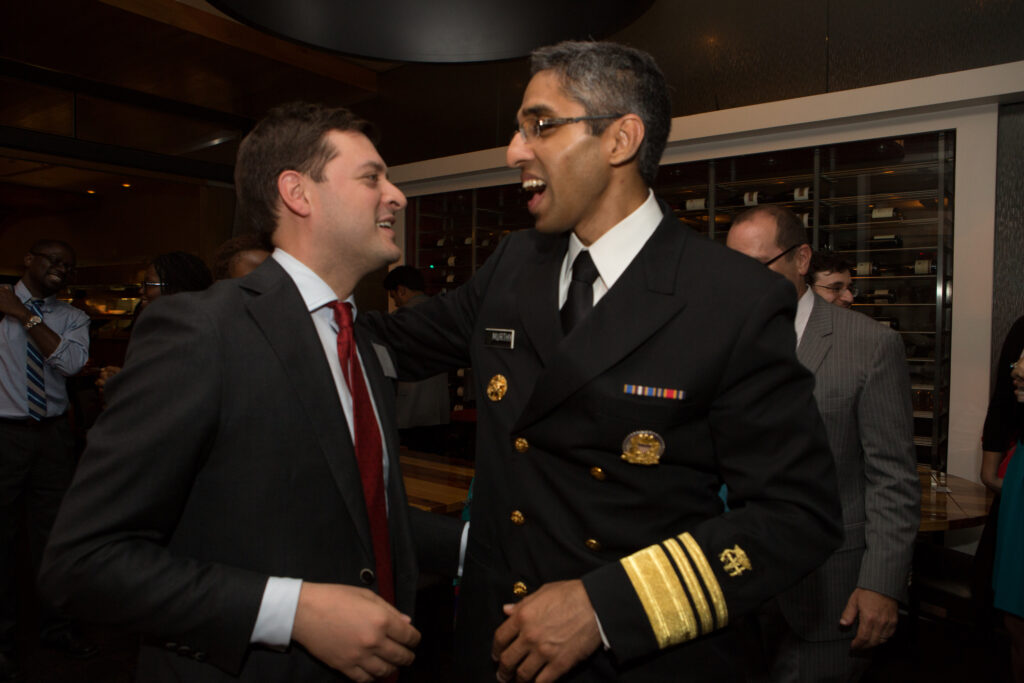
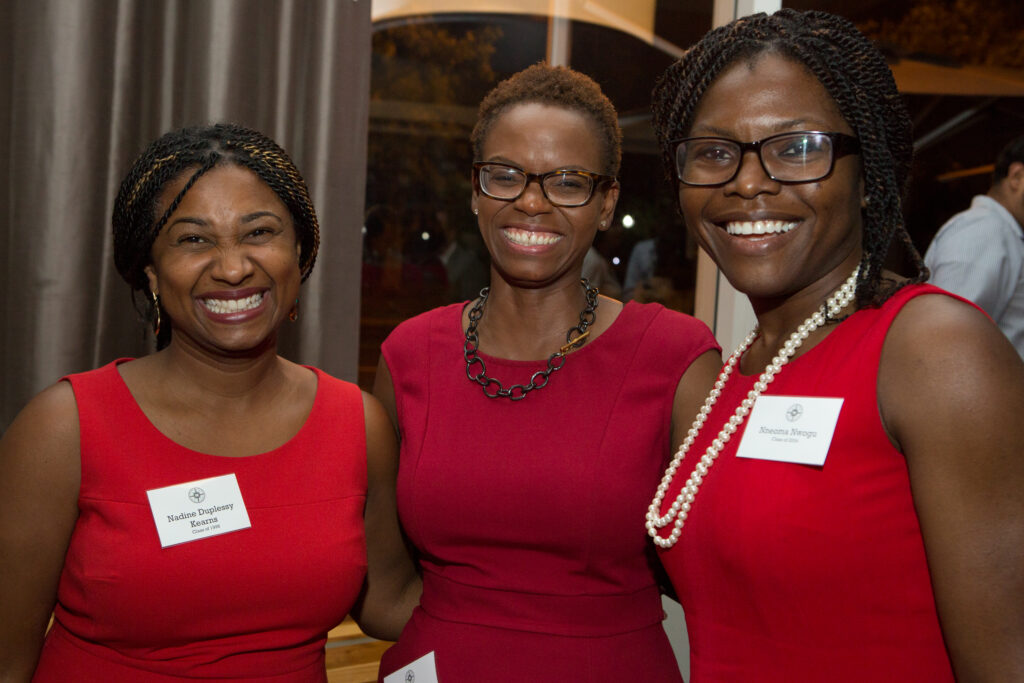
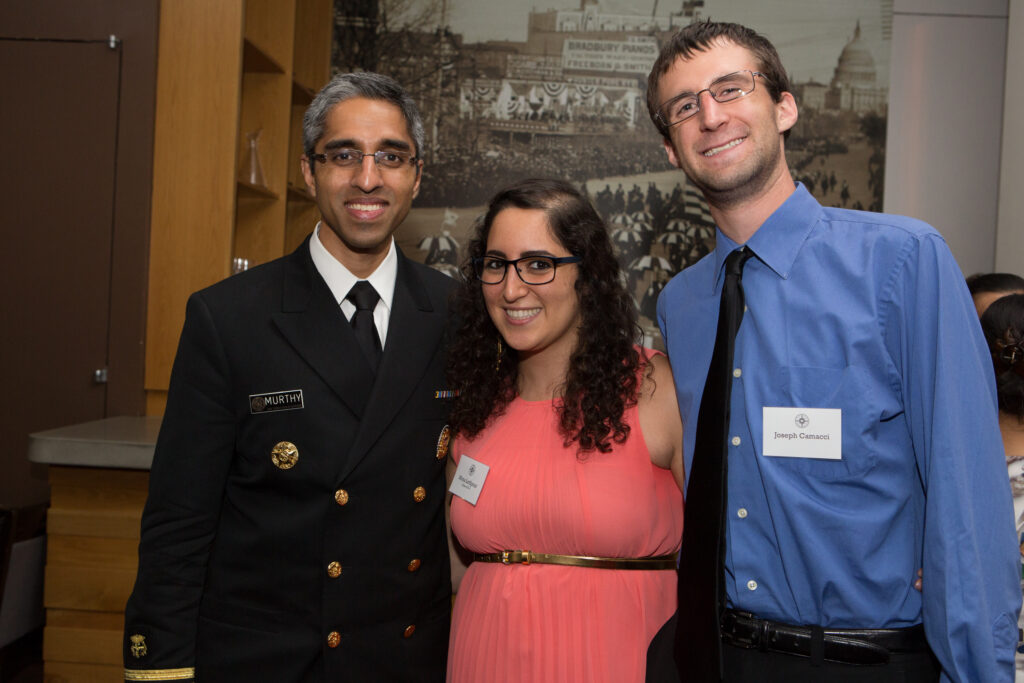
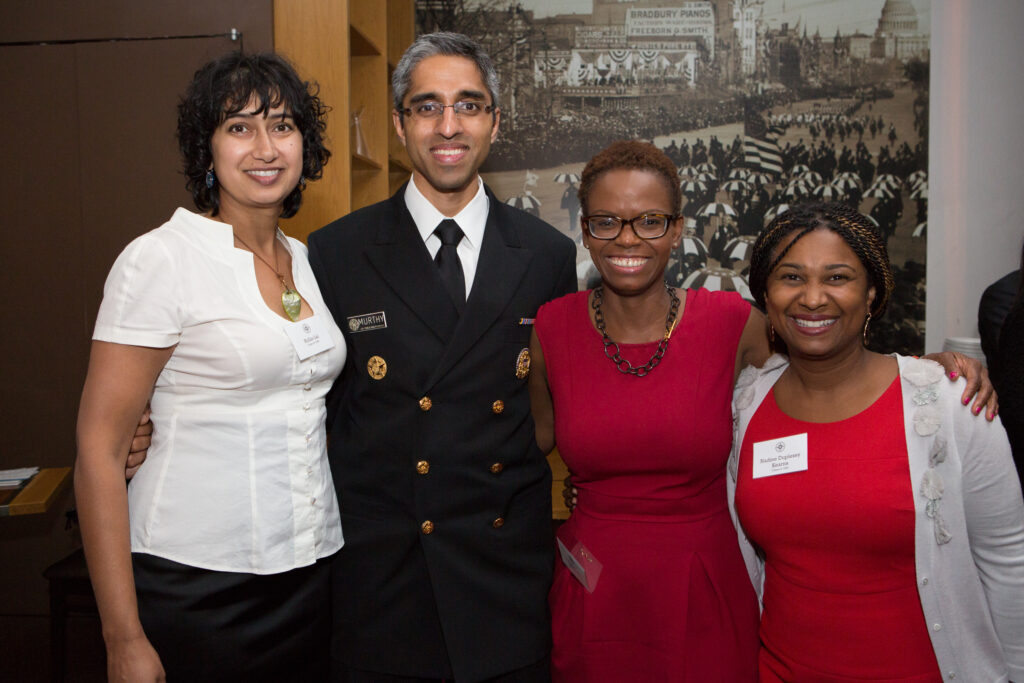
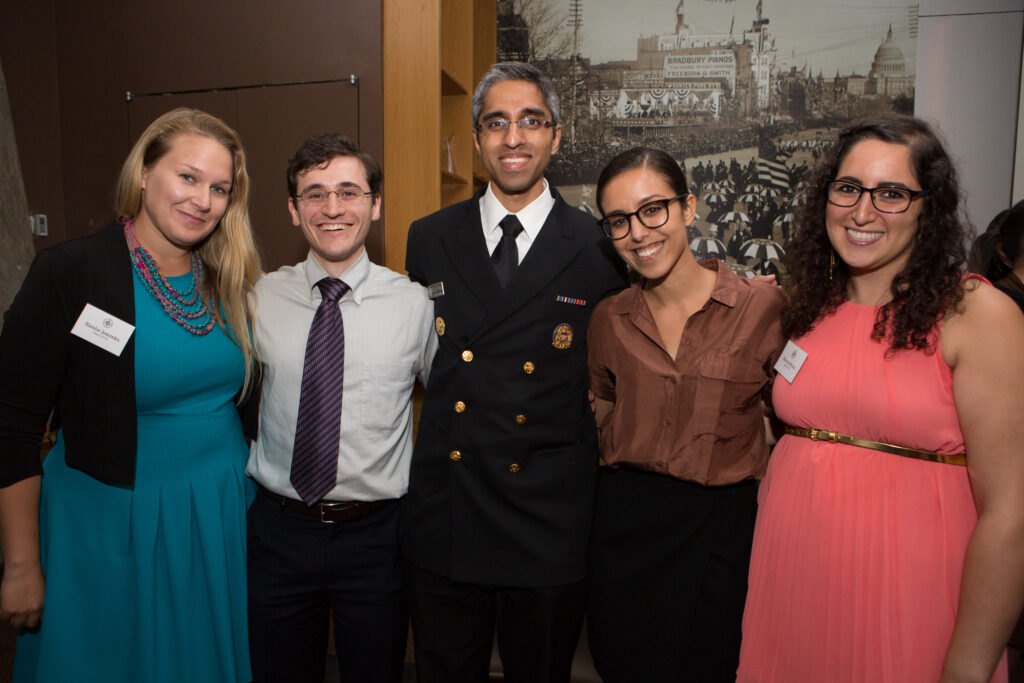
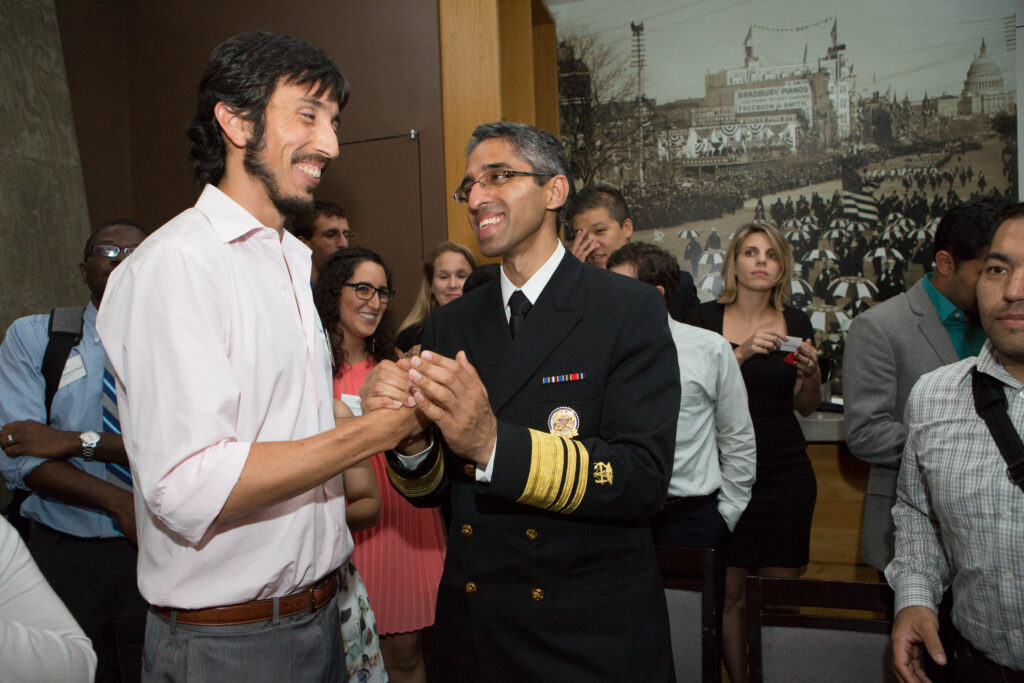
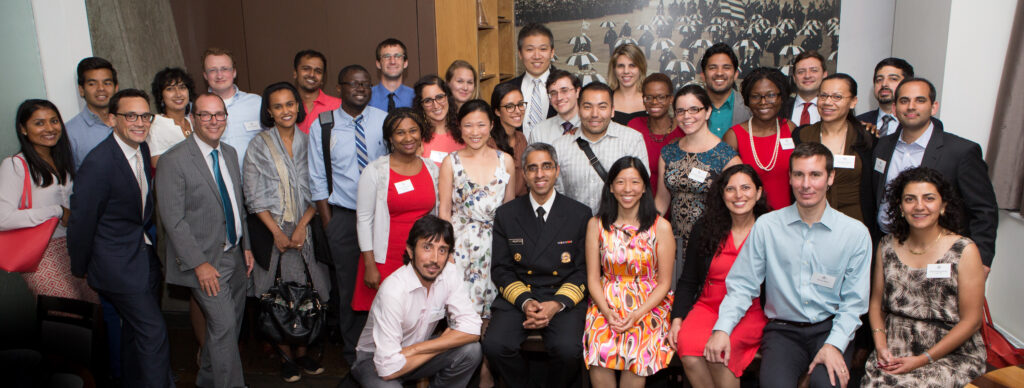
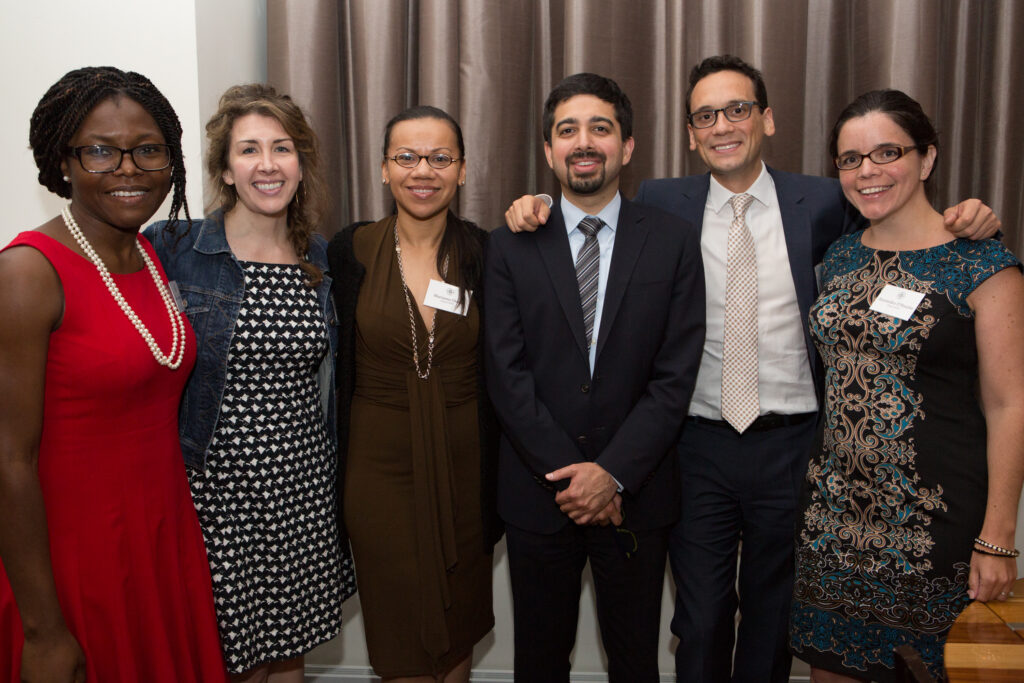
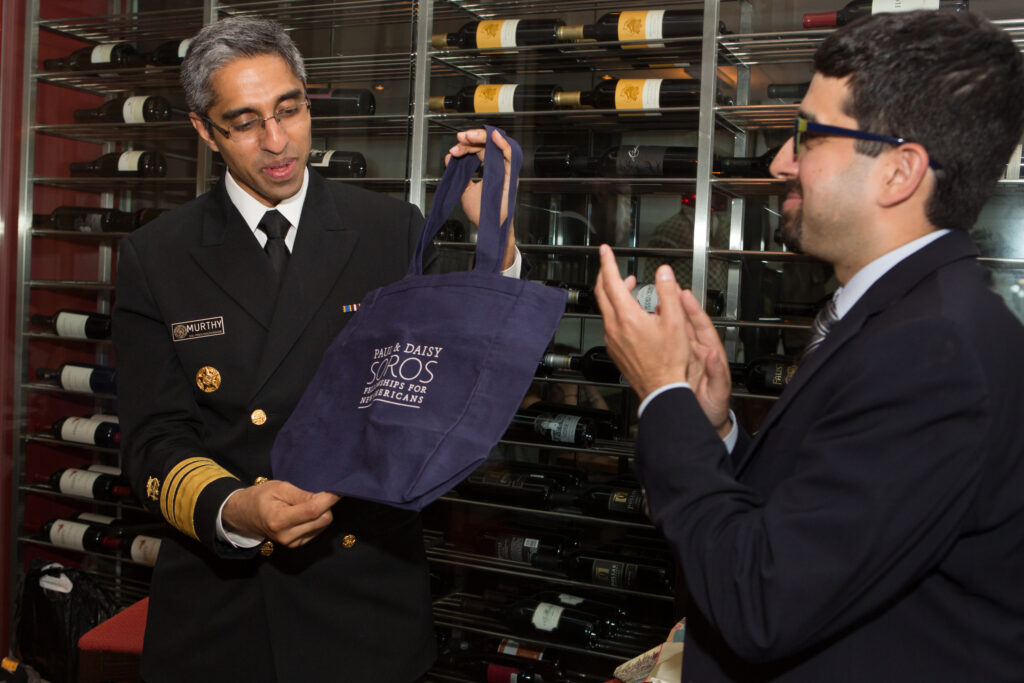
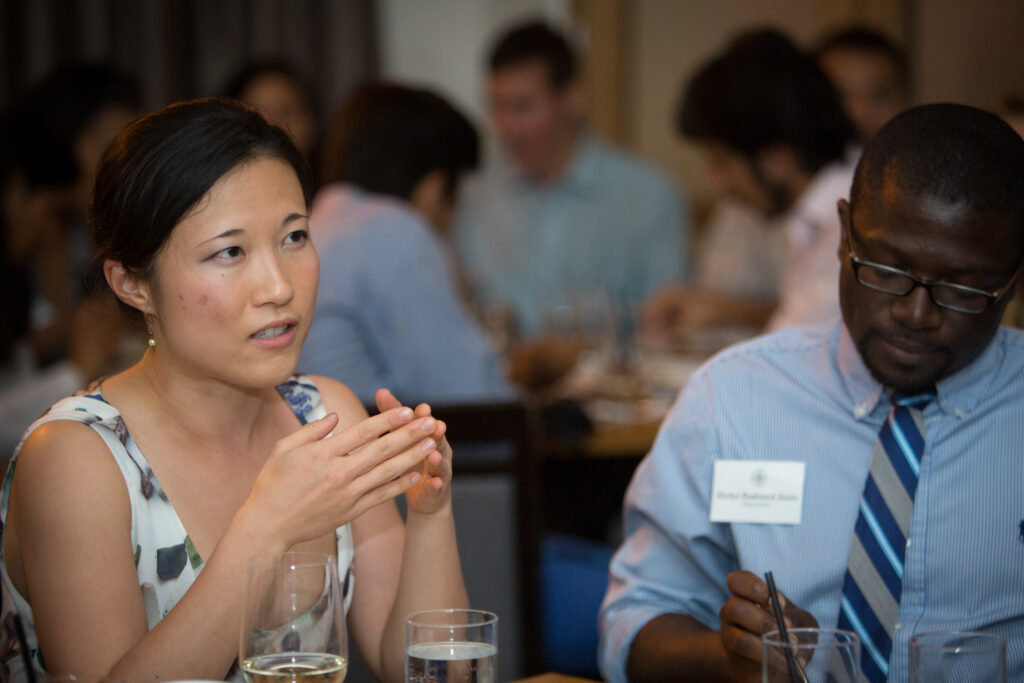
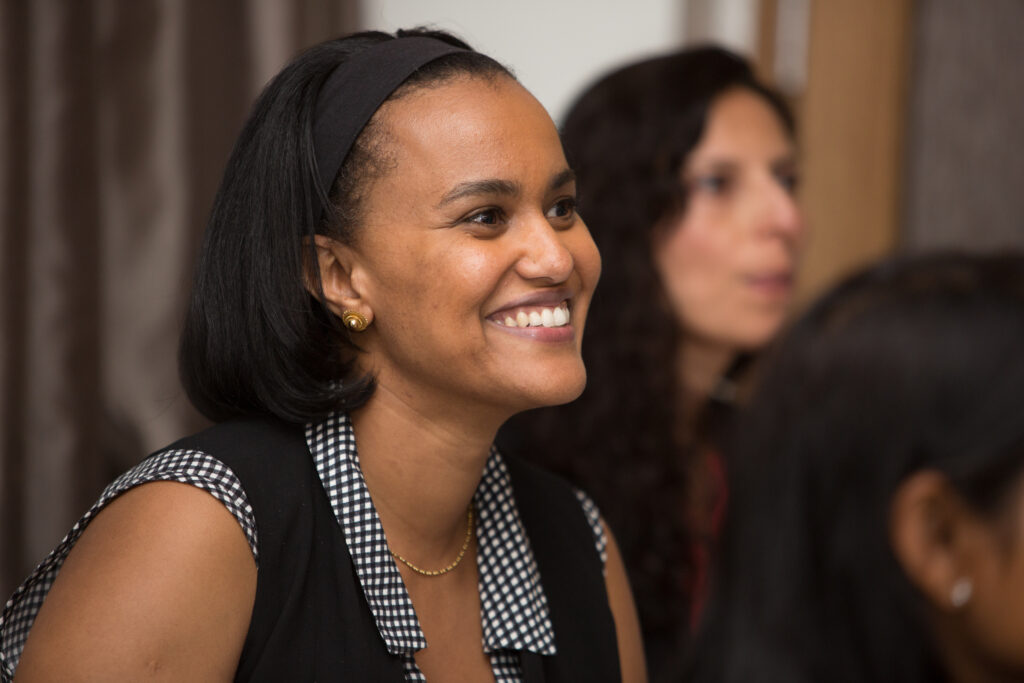
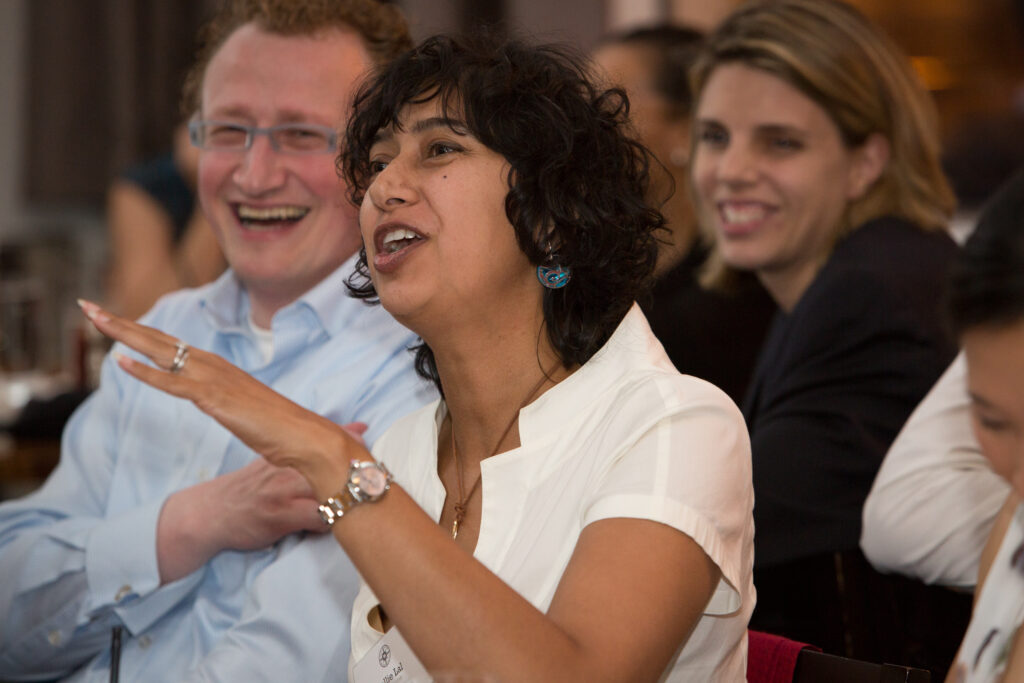
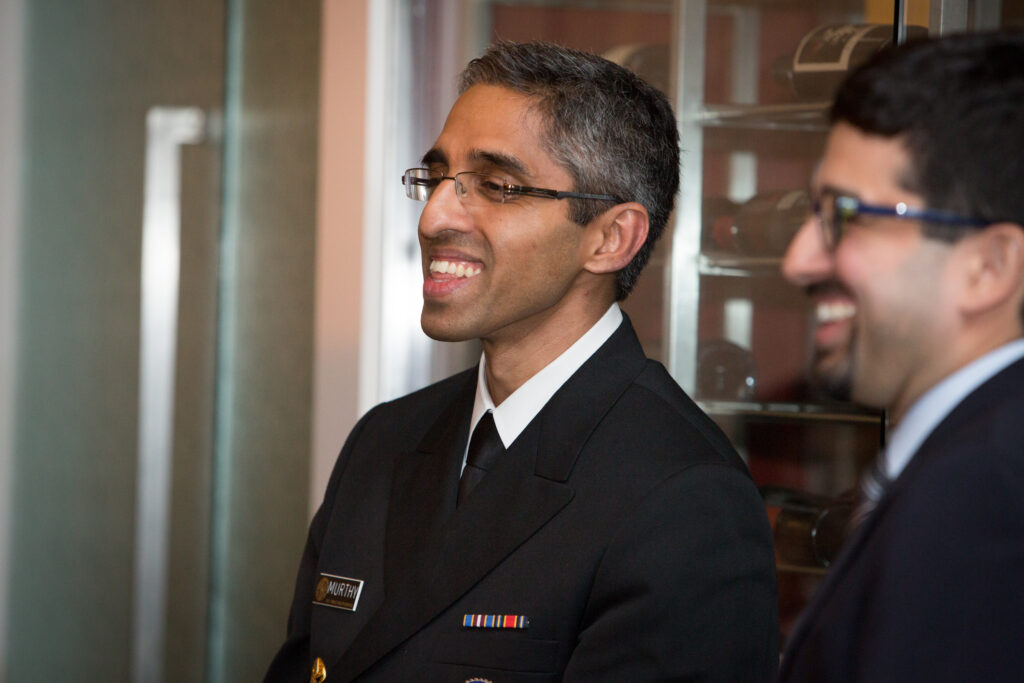
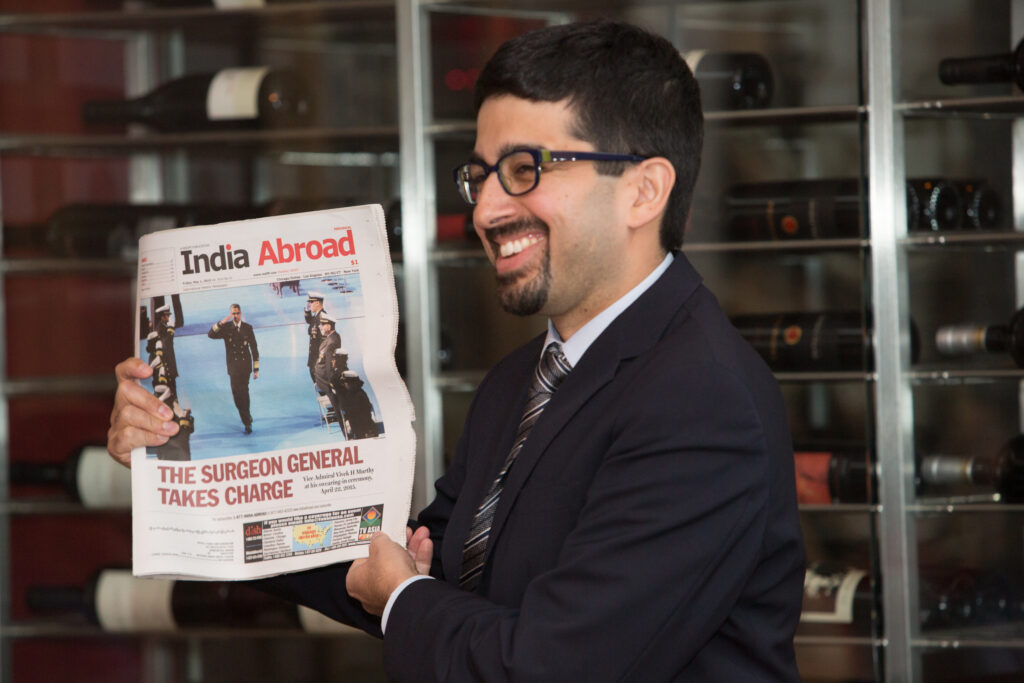
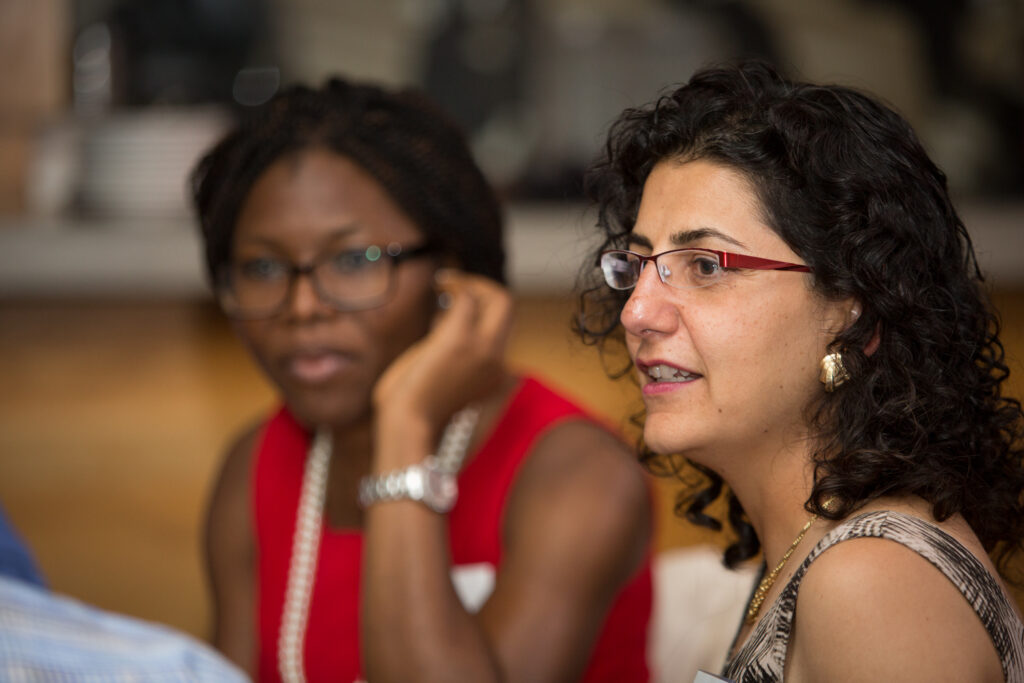
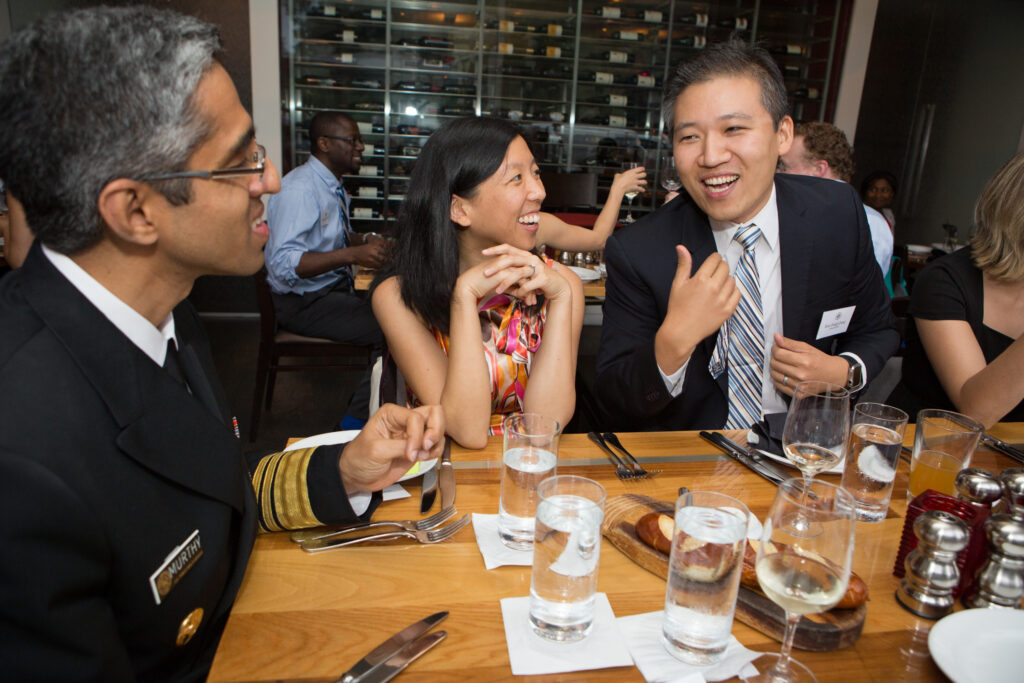
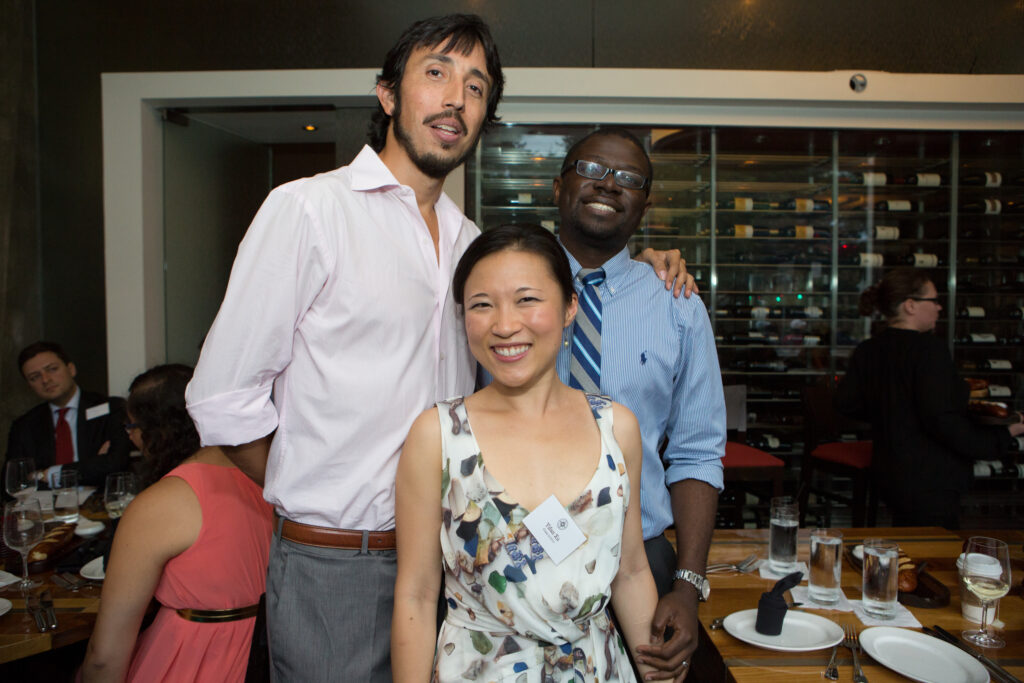
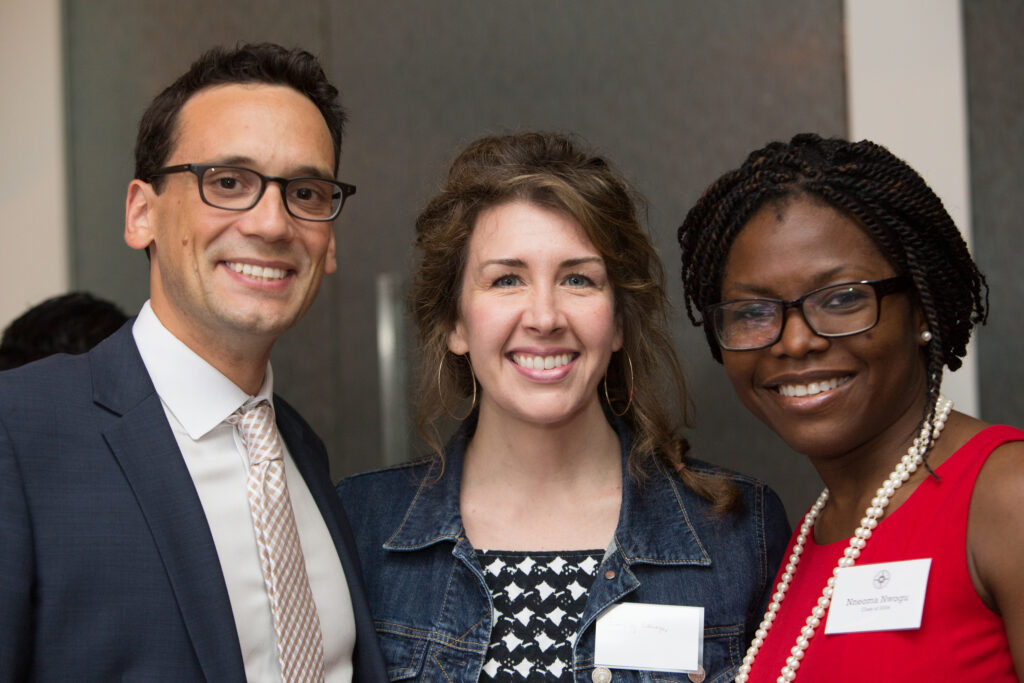
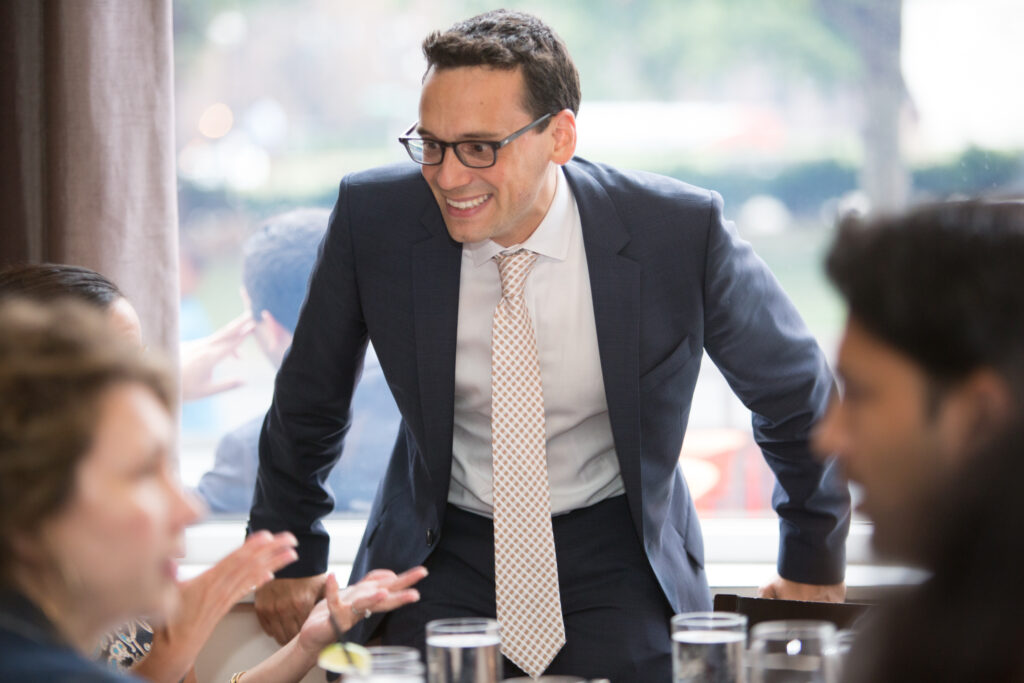
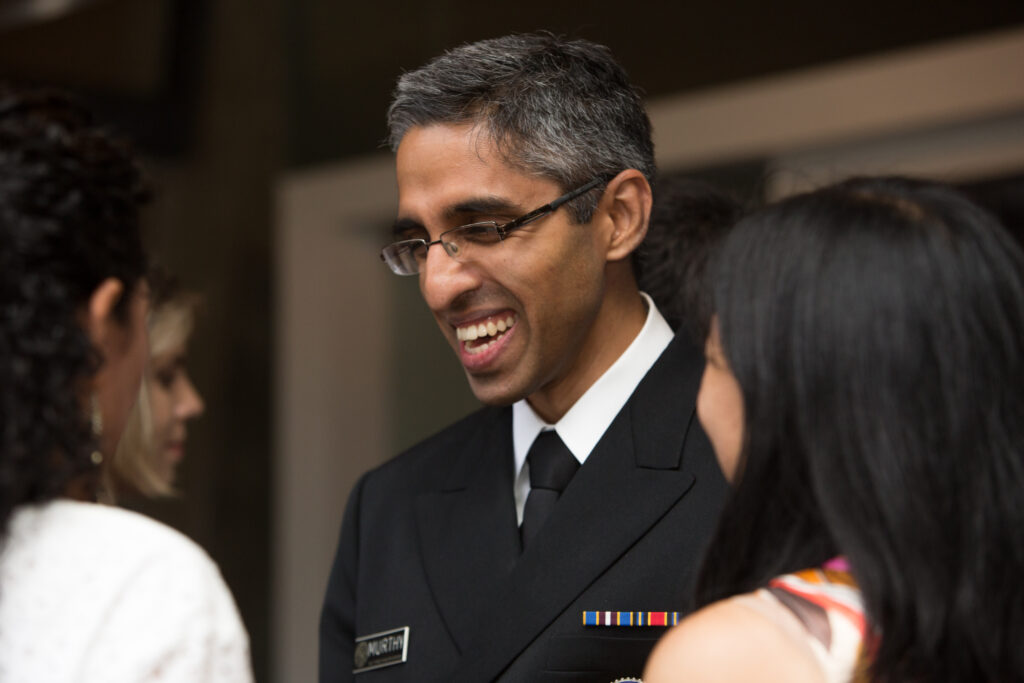
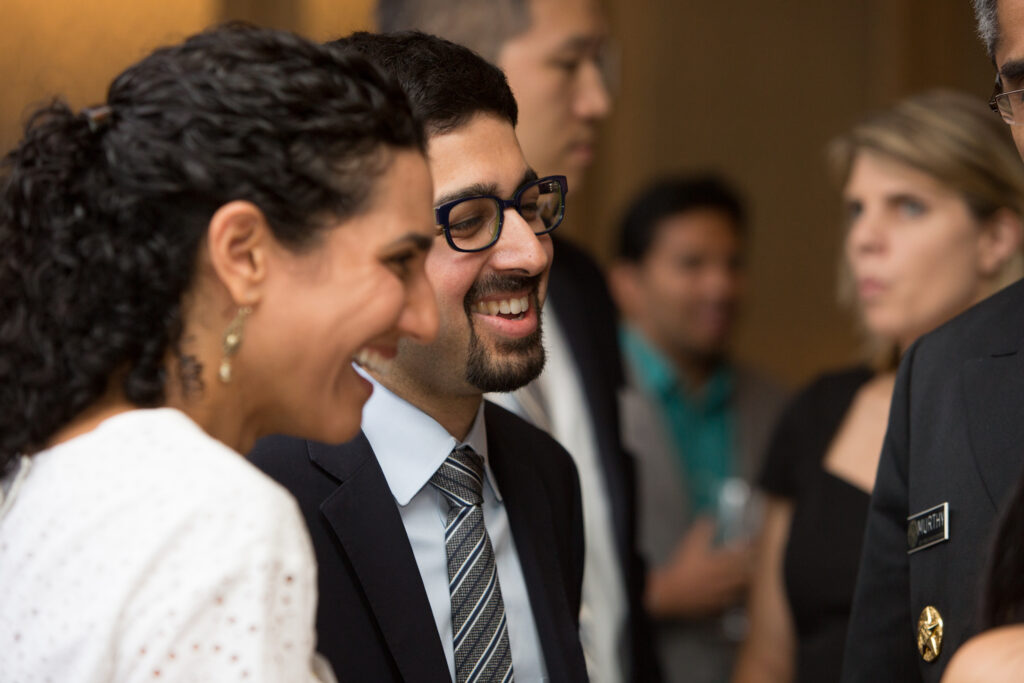
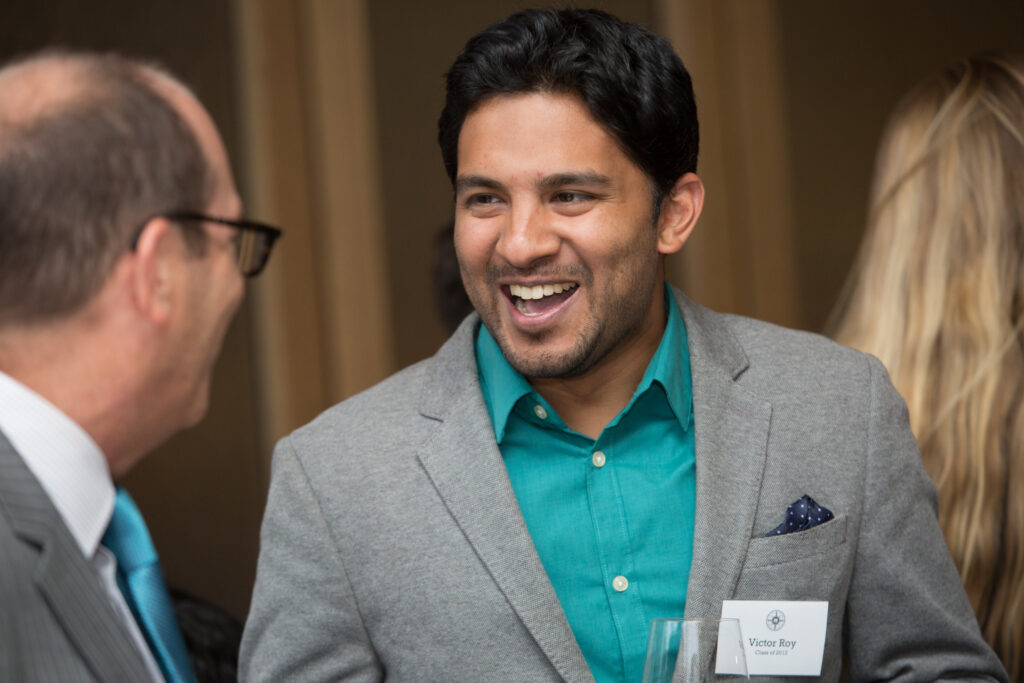
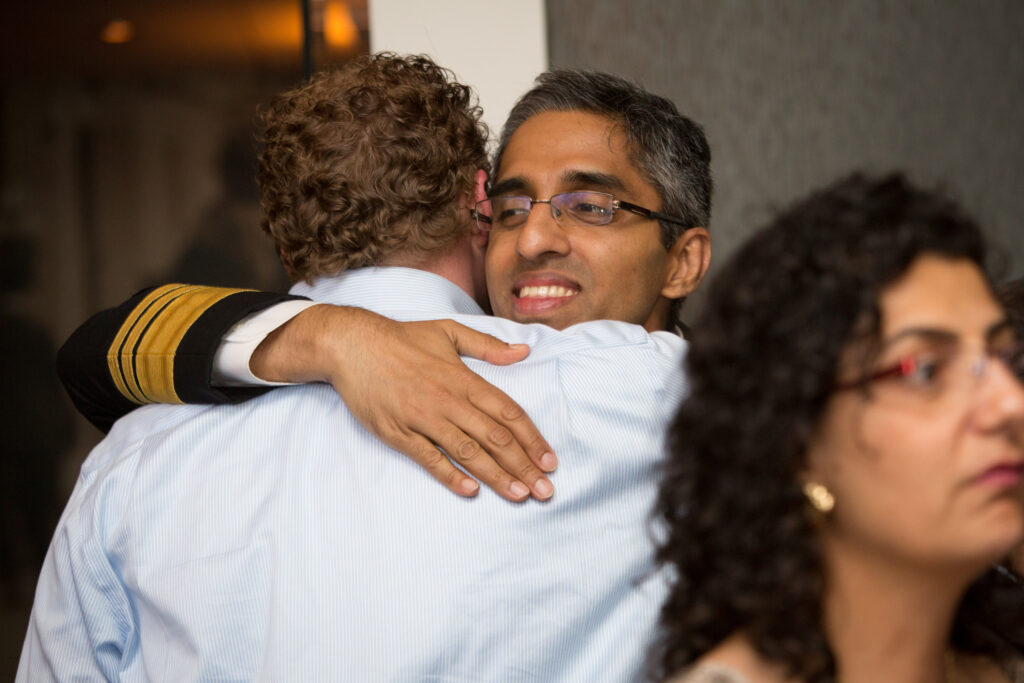
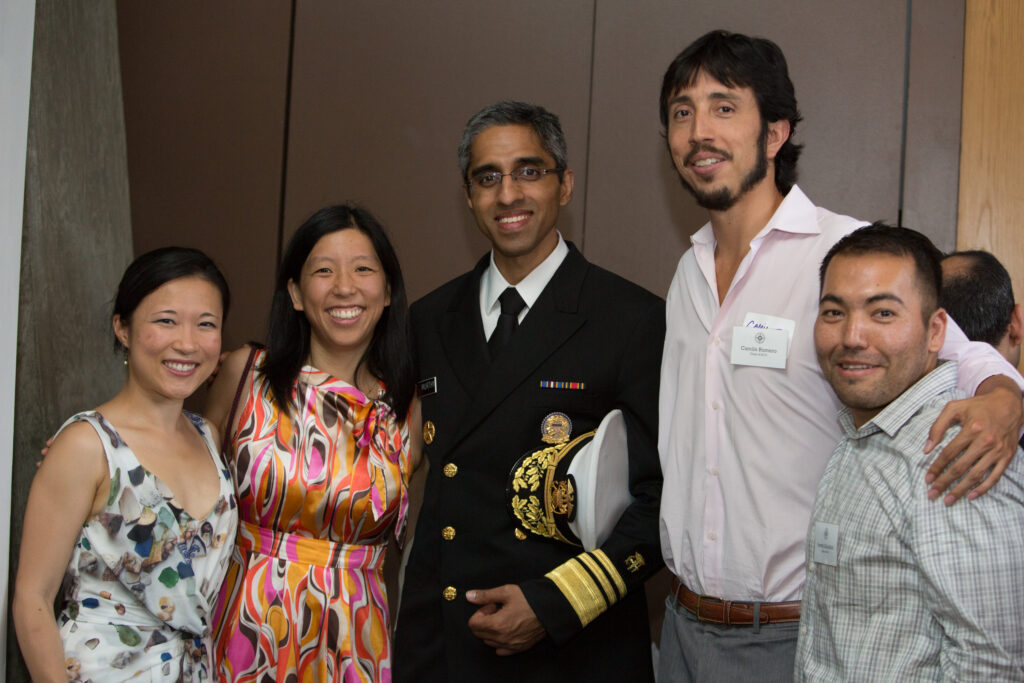
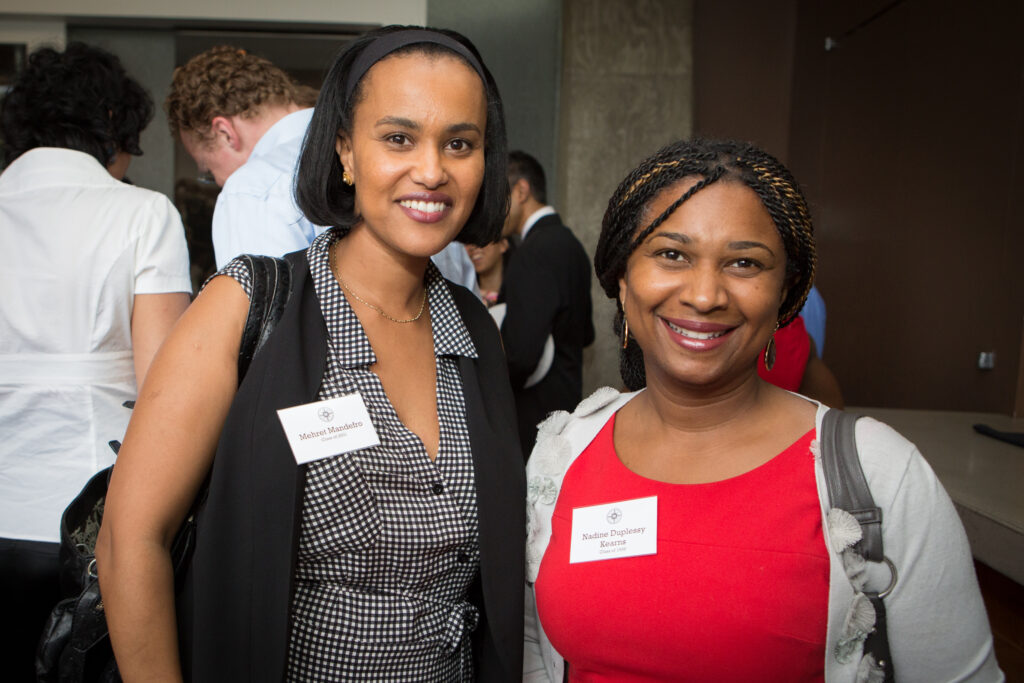
Mandefro Mehret (2001 Fellow) and Nadine Duplessy Kearn (1998 Fellow) at the PDSFA event in honor of US Surgeon General & Fellow Vivek Murthy, 2015.
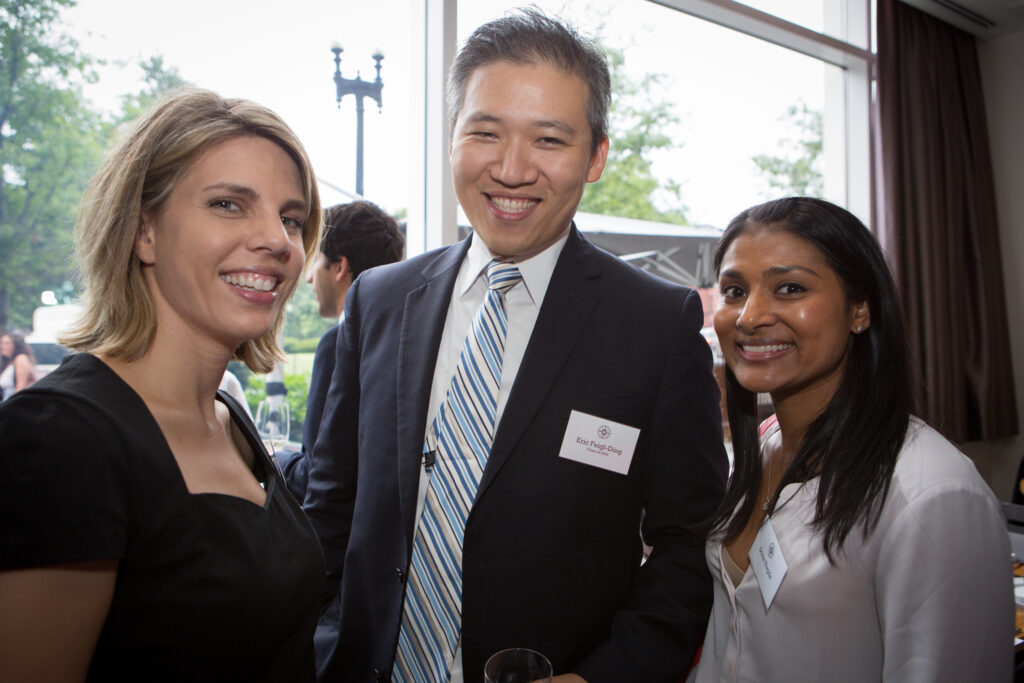
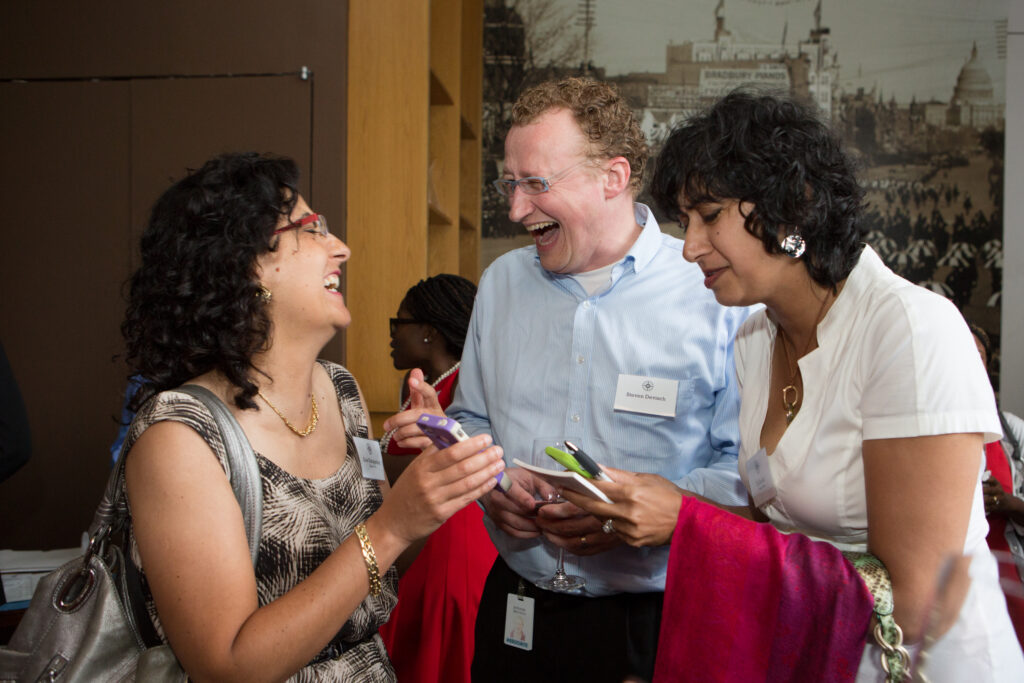
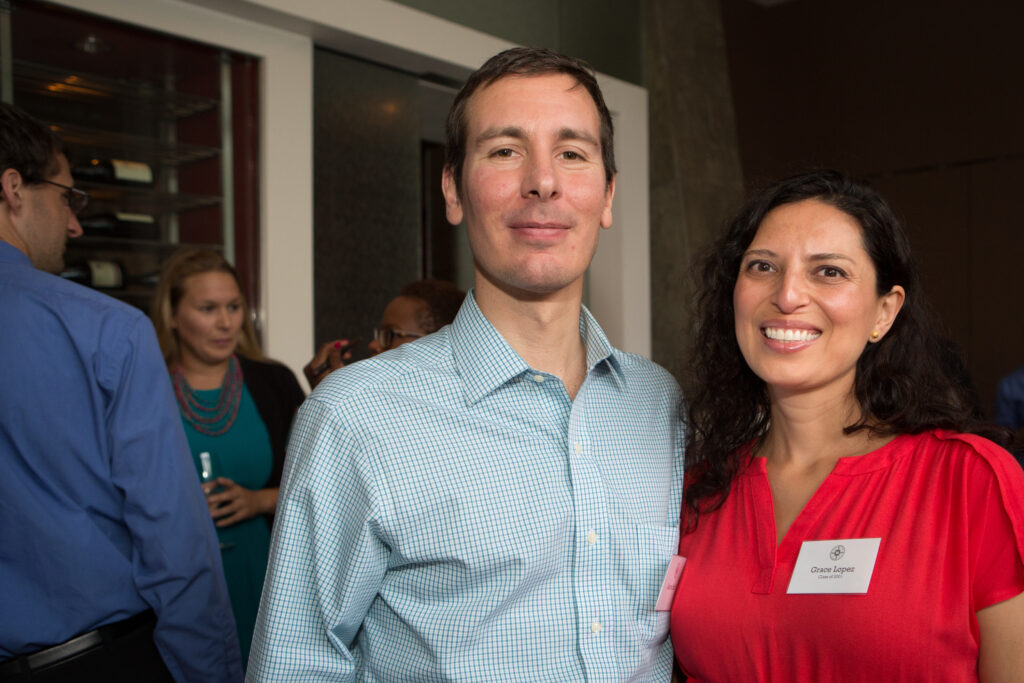
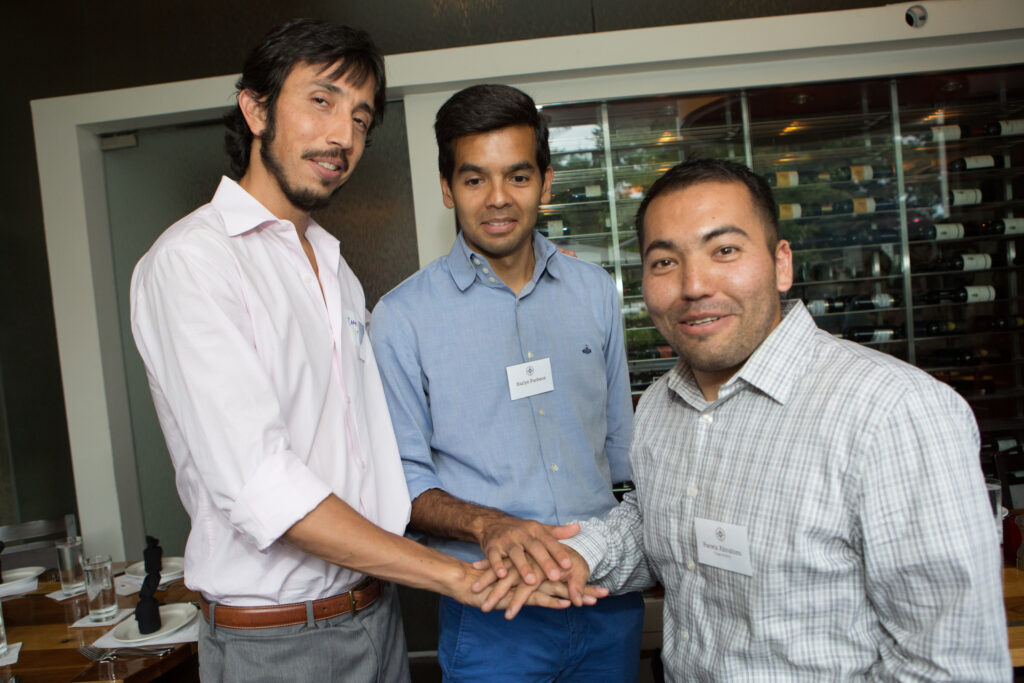
Camilo Rimero (2010 Fellow), Harlyn Pacheco, Parwiz Abrahimi (2013 Fellow) at the PDSFA event held in honor of US Surgeon General & Fellow Vivek Murthy.
Before the formal conversation with Vivek began, I discovered that Natalie Jesionka (2014 Fellow) had just finished a documentary, “Selling Our Daughters,” a film based in Thailand that delves into how NGOs can become more accountable. And seated beside her, Mona Lotfipour (2014 Fellow) was debating whether to return to Iran for a medical rotation. She admitted that it wasn’t so simple. The diplomatic roadblocks thrown up by the US government and Iran could prove easy compared to gaining consent from her folks. Nneoma Nwogu (2004 Fellow) sighed that she was so busy this year working on mining legislation for Africa at the World Bank that she had had no time to write poetry.
Victor Roy (2012 Fellow) mentioned “In the Paul & Daisy Soros interview they asked me what do you want to do in the next 15 years. But my answer probably changed in the next month.” His own focus moved from health workers in Liberia to looking at how innovation in medicine is funded.
I returned to find everyone eagerly anticipating Vivek’s comments, although according to Nadine Duplessy (1998 Fellow), “I told my kids the chief doctor of the US was coming. They weren’t impressed.” My first thought upon seeing Vivek, who I have known since 1998 and seen in actual sneakers, was shock. His shoes were polished to a futuristic shine, and the Vice Admiral uniform was amazing. Even the kids would have thought he was extremely cool.
Vivek started by sharing his memory of becoming a Paul & Daisy Soros Fellow with the group. “My roommate told me about the Fellowship. I thought I’d like to do well in the interview, but I stayed up until 3 or 4 in the morning the night before, talking to my roommate [Akil Palanisamy (1998 Fellow)] who I saw every day. I overslept and showed up 15 minutes late for the interview! Afterwards I was so upset and angry at myself and went to sit on a park bench. I was thinking ‘How could things get any worse?’ And at that moment… a bird pooped on me. So I was thrilled a few weeks later to find that I was actually awarded the Fellowship!”
On the most controversial aspect of the confirmation, Vivek noted, “Craig Harwood [director of the Fellowship] asked me if I regretted my tweet about guns. I don’t regret that tweet because it wasn’t a debate about the Second Amendment, it was about the need to have a conversation about how we, as a society, are going to address violence. And while my focus isn’t going to be on guns, I will continue to speak up on all issues that affect public health.” So there it stands: Vivek supports our constitutional right to Tweet.
Vivek admitted that his story has changed over time, moving from global health to building effective organizations, and then on to building integrative health centers. “The next step was to build my technology company,” he said, “When the 2008 presidential campaign began, I had no interest in politics, but I was captivated by then Senator Obama. Soon, I volunteered at a phone bank where we called voters and asked them to support Obama.”
Always gracious, Vivek mentioned that many friends from the Paul & Daisy Soros Fellowships had helped him with his Senate confirmation. But with such a difficult process, sometimes he wanted to escape. In response, he deepened his spiritual practice. His fiancée Alice grounded him with the advice: “Just be Vivek.” Rahul Rajkumar (2004 Fellow), who moderated the conversation, joked that he too, often thinks to himself, “Just be Vivek.” I wondered if the mindfulness app could help with this epidemic.
Vivek urged everyone to join his focus on community-based prevention. He noted that people in the US feel they cannot improve their own health, they think they need a pill, or that insurance companies and the government have control over their health–This is a major problem.
I agree wholeheartedly. I personally have discovered that insurance companies spend approximately 87 percent of their budgets on creating automated phone services for the purpose of frustrating the public to the point that 45 percent of all callers have a heart attack on the spot. The remaining 13 percent of the insurance budget is spent on sending you the bill. The government manages all this by having Congress hold lengthy debates on the need for heart attacks.
Thus I was happy that Vivek offered a solution: We can empower people by building a culture of prevention. Less popping pills, more hiking hills. He emphasized that “People develop beliefs through the people around them. You eat what your parents cook, what your friends eat, what’s available. Community-based prevention is about engaging cultural institutions. Everyone has a role to play.”
And fortunately, according to Dr. Vivek Murthy, it’s our own attitudes that ultimately have the most influence. It appears that happiness is one of the most important tools to improve health. There’s no app for that. So I just turned off my phone and turned up my smile. ∎
Featured Fellows
-
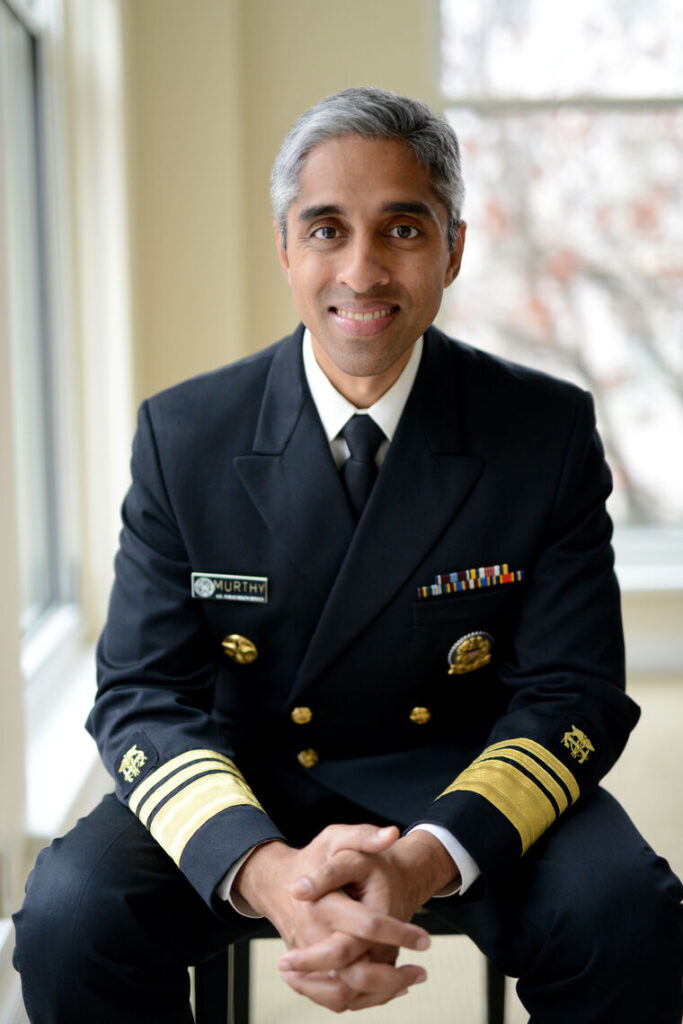
Vivek Murthy
Surgeon General, United States
Vivek Murthy is an immigrant from United Kingdom. Fellowship awarded in 1998 to support work towards an MD in Medicine at Yale University
-
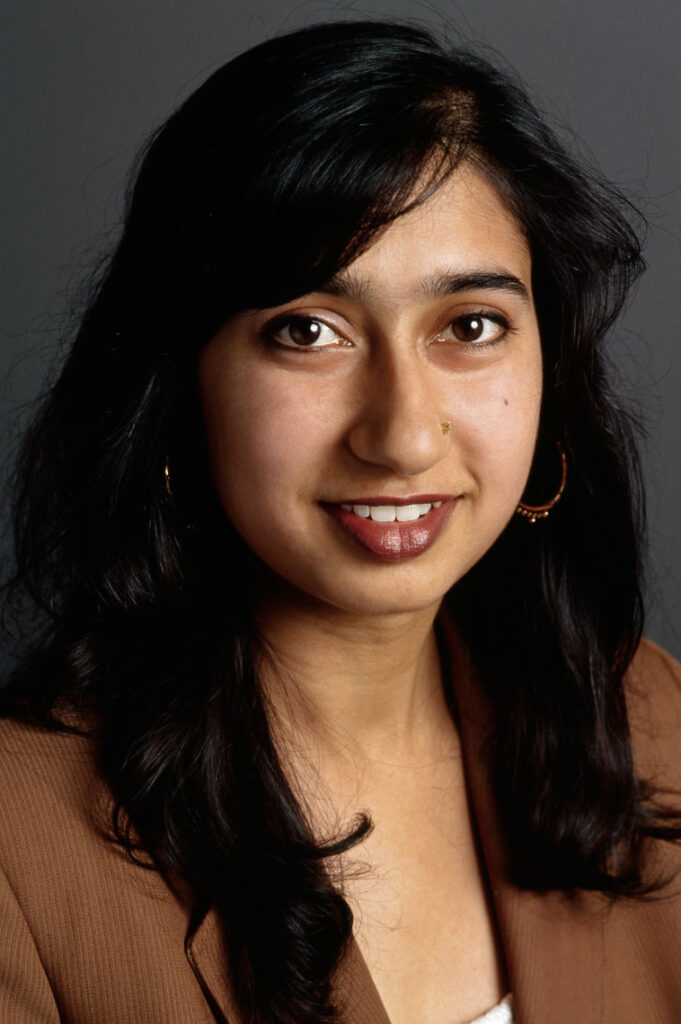
Rollie Lal
Associate Professor, Elliott School of International Affairs at George Washington University
Rollie Lal is an immigrant from India. Fellowship awarded in 1998 to support work towards a PhD in International Relations at Johns Hopkins University
Keep Exploring
-
 Read more: Q&A with MD/PhD Student Silvia Huerta Lopez
Read more: Q&A with MD/PhD Student Silvia Huerta LopezQ&A with MD/PhD Student Silvia Huerta Lopez
-
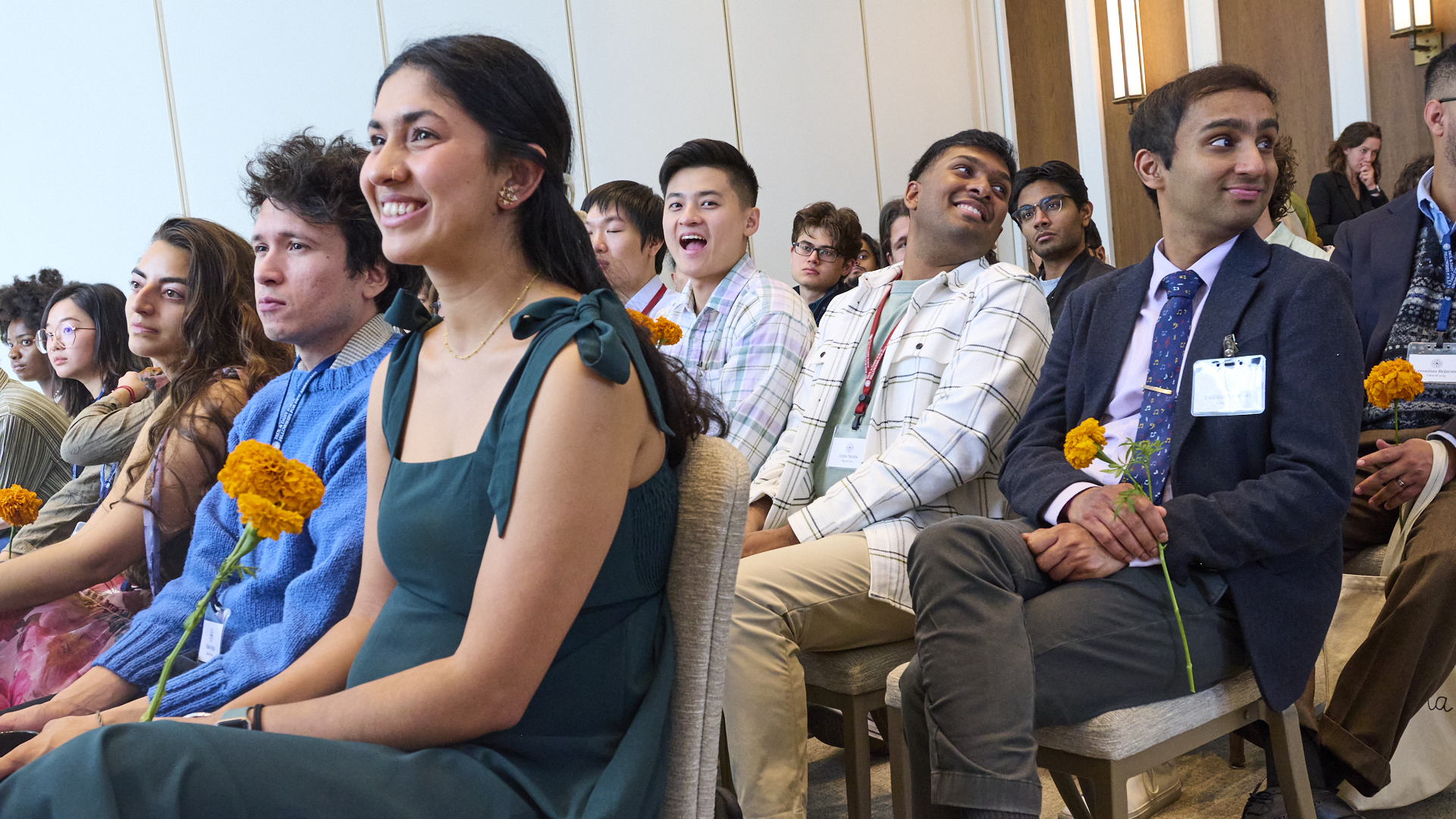 Read more: PD Soros Eligibility Guide for PhD Applicants
Read more: PD Soros Eligibility Guide for PhD Applicants- Applicant Information
PD Soros Eligibility Guide for PhD Applicants
-
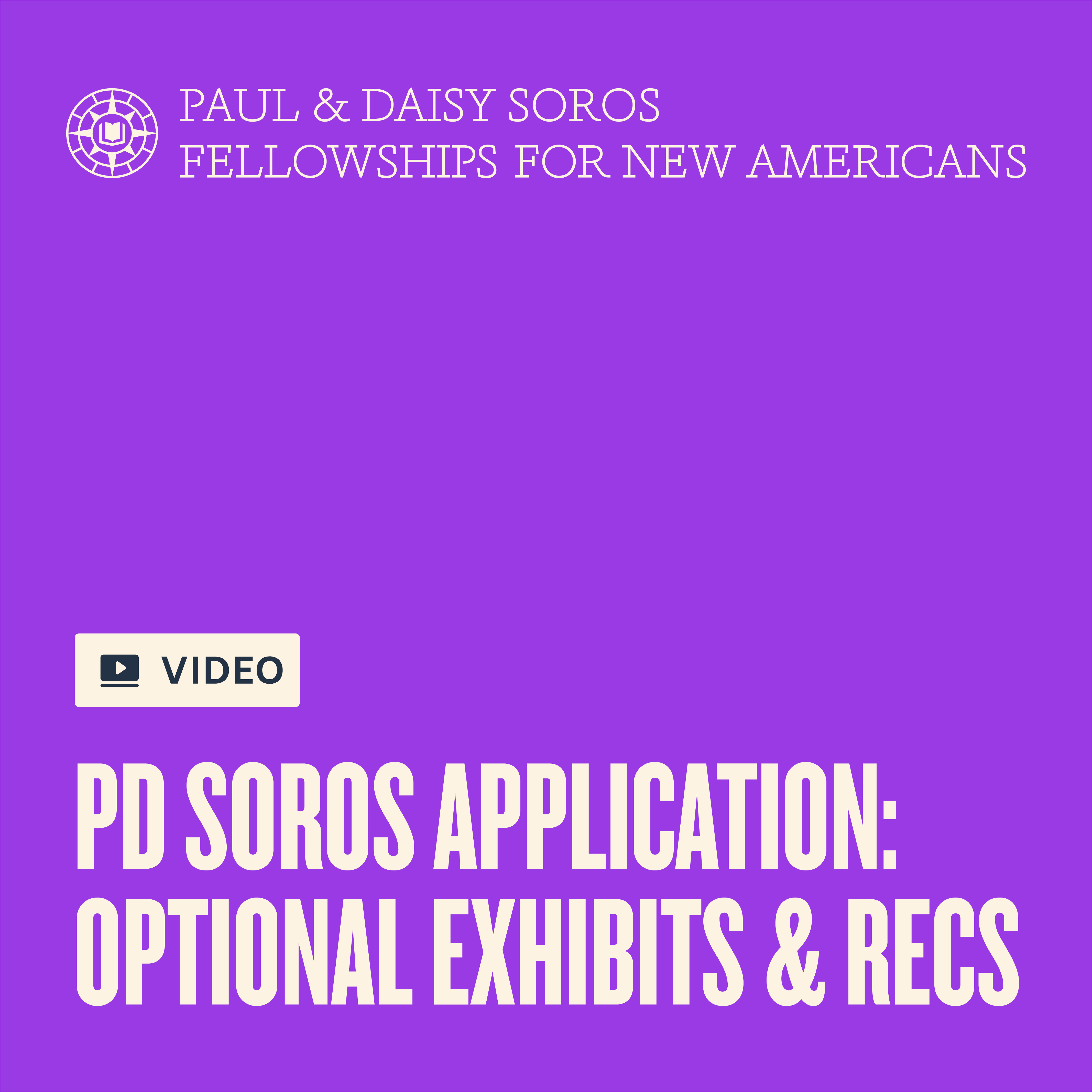 Read more: Watch: Optional Exhibits & Recommendations
Read more: Watch: Optional Exhibits & Recommendations- 2025 Information Sessions
Watch: Optional Exhibits & Recommendations
-
 Read more: Watch: Essay Writing information session
Read more: Watch: Essay Writing information session- 2025 Information Sessions
Watch: Essay Writing information session